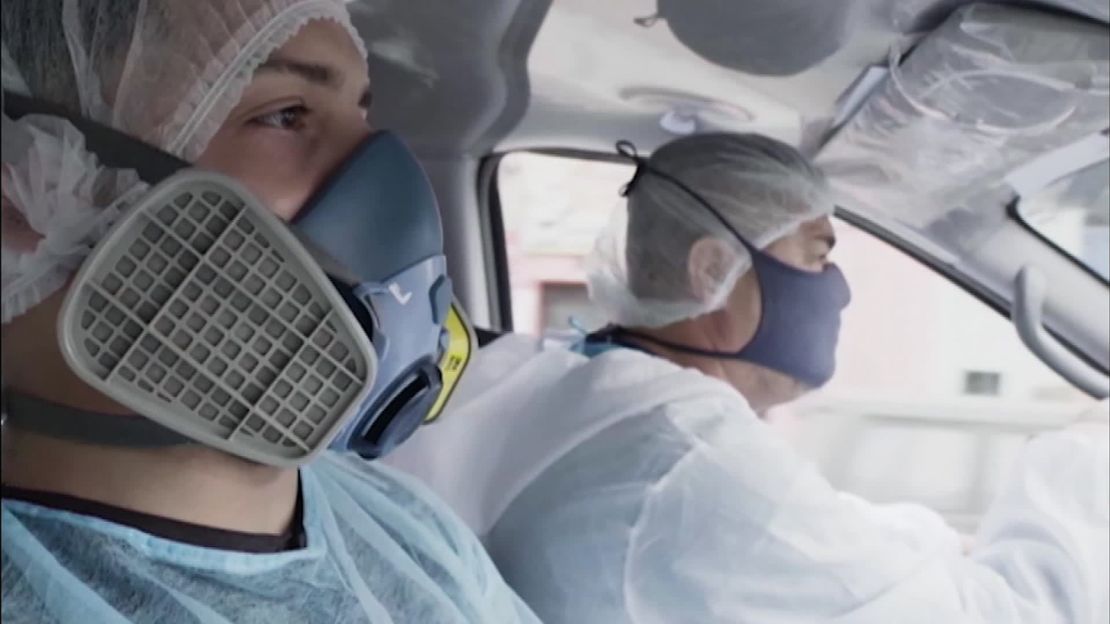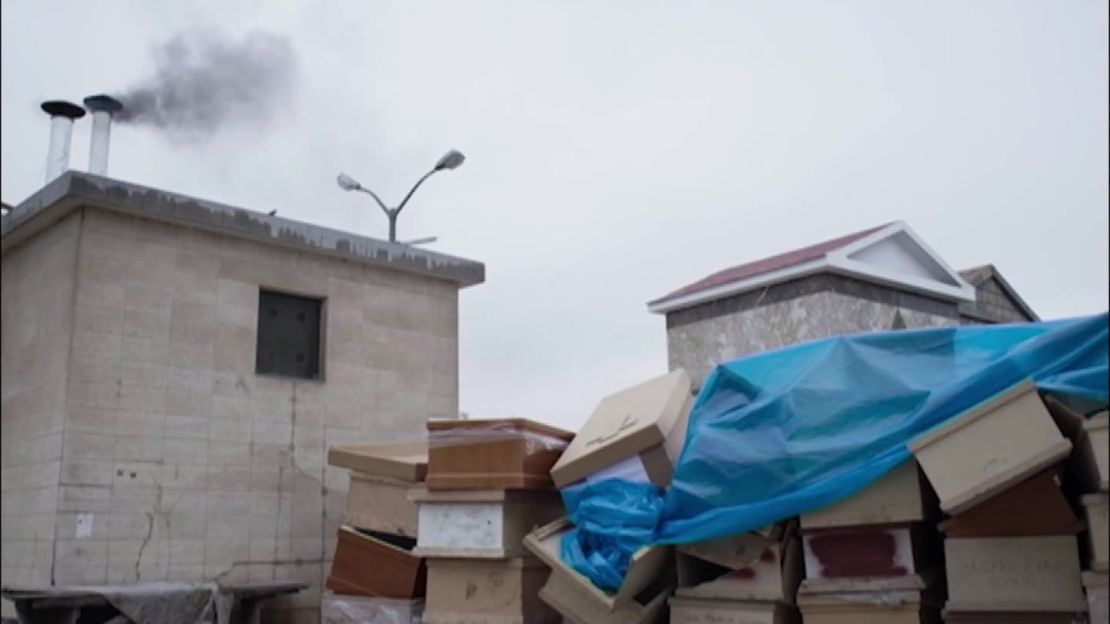“Death, Death, here it comes,” Néstor Vargas and Luis José Cerpa sang with the radio through their face masks, as they barreled down the road in their van.
Dressed from head to toe in hazmat gear, the two men collect the bodies of people who died from Covid-19 in and around the Peruvian capital Lima. It’s a job few want because of potential exposure to the virus. But these two Venezuelan immigrants are taking the risk.
“We are scared we can get infected and take it home, where I live with my wife, children and my mother,” Vargas said. He cradled his cell phone, with a photo of his wife and children as his screensaver.
Like tens of thousands of others, Vargas and Cerpa came to Peru to escape the collapsing economy at home. According to the UN Refugee Agency, nearly 5 million have fled Venezuela since 2016 and at least 870,000 ended up in Peru, working low-wage jobs to make ends meet or to send funds home to impoverished loved ones.
Cerpa, 21, was a graphic design student before fleeing to Peru, where he worked as a bartender and waiter. Vargas, 38, worked in the funeral business in Venezuela but had a job as a driver with the gas company in Peru. As the virus spread throughout the region, tourists vanished and the business of burying the dead became a growth industry.
“We couldn’t work for three months, and we needed to eat, pay rent and send money home to Venezuela,” Vargas said. “This job can be really difficult, but we have a saying here, necessity has a dog’s face.”
He and Cerpa now earn $500 a month each for their efforts, nearly double the minimum wage in Peru. They work up to 19 hours a day, seven days a week.

Despite Peru’s early action to contain the pandemic, the coronavirus has spread like wildfire through the country. More than 353,000 people have been diagnosed with the virus so far.
In every house, a familiar sound greets Cerpa and Vargas. Families sobbing, crying out for their lost loved one. They try to move in and out of the houses as quickly as possible while being respectful.
Most of the bodies they collect are from poor neighborhoods, from homes where people can’t afford to hire a funeral director to handle the burial. There have been more than 13,000 deaths from Covid-19, and the public health system is collapsing under the weight of the grim toll. What’s left for the poor is a death with little dignity.
The family of Raul Oliveras, 63, called an ambulance when he fell ill of Covid-19 symptoms. But it never arrived and they watched him die at home. That night, Vargas and Cerpa entered, and grabbed the bed coverings to lift the body off the bed.
As the neighborhood dogs barked and the family grieved on the darkened street, Vargas and Cerpa put Oliveras’ corpse in a black body bag and hauled it into the back of their van for the journey to the crematorium.
At the city’s El Angel Cemetery crematorium, many of the staff handling bodies also are Venezuelans.
“The Peruvians don’t do it. It’s tough,” said Orlando Arteaga, who works seven days a week, earning the money he needs to support three children in Venezuela and a 2-year-old daughter in Lima. He says he never imagined he would see so much death, but that “somebody has to do it – and we need work.”
Arteaga, 40, is in charge of the ovens, which operate constantly. A pile of cardboard coffins is stacked haphazardly nearby.
“These are not even all the bodies. There are bodies elsewhere, because there is no space, and we cannot leave them outside,’ he said.

“I wouldn’t wish this job on my worst enemy,” he added.
By nightfall, Vargas and Cerpa had collected and delivered more than a dozen bodies. They were tired, but their work wasn’t done. Around 11pm, their final call of the day came from Villa Maria del Triunfo Hospital. The staff asked the men to collect 13 bodies, because their morgue was overflowing.
Cerpa and Vargas arrived at the hospital and waited for the paperwork. With their masks and gloves off, they rested and ate some chicken from a styrofoam container. It was the first time in hours that they’d had a break.
These grueling days have become the norm for them. “Sometimes we get home at 2am or 3am. After we shower and eat it’s already 4am,” Cerpa said. “We’re up again and have to leave at 8am. Then it’s the same all over again until the next day.”
His days of mixing cocktails for happy tourists might as well be a lifetime away. Still, he said he has learned something important about living, after being surrounded by death: “Now I simply live day by day… I live each day as if it were my last.”

